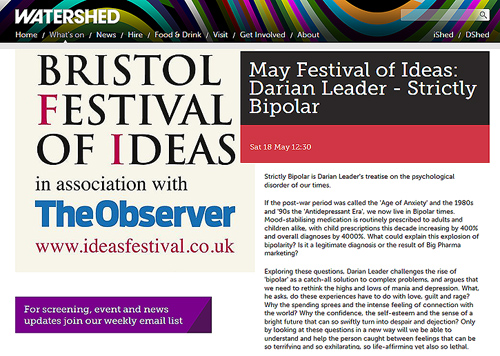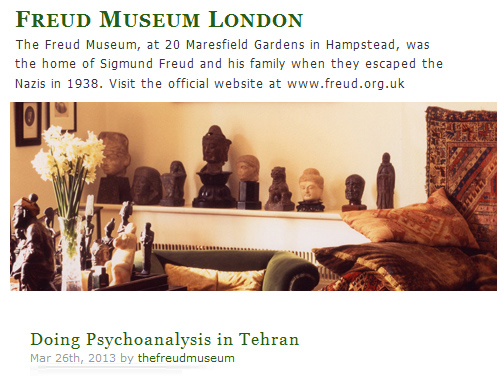‘Strictly Bipolar’ – Darian Leader at the Bristol Festival of Ideas – 18th May 2013
‘Strictly Bipolar’ – Darian Leader at the Bristol Festival of Ideas – 18th May 2013
Click here to read the full article on the Watershed Website.
Strictly Bipolar is Darian Leader’s treatise on the psychological disorder of our times.If the post-war period was called the ‘Age of Anxiety’ and the 1980s and ’90s the ‘Antidepressant Era’, we now live in Bipolar times. Mood-stabilising medication is routinely prescribed to adults and children alike, with child prescriptions this decade increasing by 400% and overall diagnoses by 4000%. What could explain this explosion of bipolarity? Is it a legitimate diagnosis or the result of Big Pharma marketing?
Exploring these questions, Darian Leader challenges the rise of ‘bipolar’ as a catch-all solution to complex problems, and argues that we need to rethink the highs and lows of mania and depression. What, he asks, do these experiences have to do with love, guilt and rage? Why the spending sprees and the intense feeling of connection with the world? Why the confidence, the self-esteem and the sense of a bright future that can so swiftly turn into despair and dejection? Only by looking at these questions in a new way will we be able to understand and help the person caught between feelings that can be so terrifying and so exhilarating, so life-affirming yet also so lethal.

